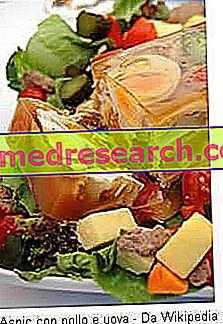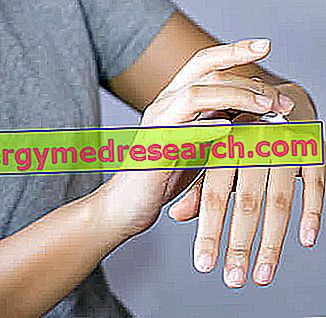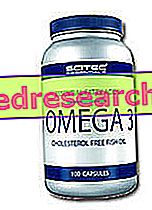In common parlance, the term hemorrhoid defines an inflammatory process of the hemorrhoidal plexus that surrounds the anal orifice. In other words, hemorrhoids are soft and richly vascularised pads in which inflamed rectal veins, extending outwards, cause discomfort, pain and bleeding.
Although hemorrhoids can occur in both sexes, pregnant women are by far the most exposed category to risk.
Hemorrhoids are favored by several factors: incorrect eating habits, alcoholism, hormonal alterations, chronic diarrhea or constipation, familiarity, a sedentary lifestyle, immoderate intake of laxatives and smoking.
What to do
- Optimizing one's diet: an unhealthy diet, characterized by excesses or the frequent consumption of "junk" foods, can favor the onset of hemorrhoids
- Always dry the genital and anal area thoroughly with a hair dryer or a soft cotton cloth (especially after intimate hygiene)
- Wear cotton underwear; prefer the one without seams and with soft elastic to avoid irritating the genital and anal area
- Wash the anal area with fresh (not freezing) water: the cold has a mild analgesic effect (cryotherapy)
- Tell your doctor immediately if you have blood in your stool: although it is not so rare to see blood in your stool when you have hemorrhoids, medical advice is always recommended, as this symptom could hide far more serious problems (eg colon cancer rectum)
- Choose a soft and comfortable toilet paper
- Use uncolored and unscented toilet paper: coloring substances and perfumes can aggravate the anal itching that characterizes hemorrhoids
- Clean the anal region with extreme care and delicacy, especially after each defecation
- Gently retract the everted hemorrhoid in the anal canal with the finger, in order to speed up its healing
- A good remedy to mitigate the discomfort of hemorrhoids is to sit on a donut cushion (available in pharmacies or orthopedics): a particularly useful precaution for those who, for work reasons, are forced to remain seated for many hours
What NOT to do
- Take alcohol: alcoholism increases the risk of hemorrhoids, therefore it is advisable to weigh up consumption
- Sedentariness: a sedentary life predisposes the subject to the risk of hemorrhoids
- Inordinate use of laxatives: these substances, by facilitating peristalsis, can inflame the hemorrhoidal plexus of the anal orifice, favoring the development (or the worsening) of hemorrhoids
- Anal sex relationships: in the case of hemorrhoids, it is recommended to refrain from similar approaches to avoid aggravating the disorder
- Apply cortisone or other pharmaceutical formulations without consulting your doctor
- Cleanse the anal and genital area with aggressive or perfumed intimate cleansers
- Scratching the anal area: hemorrhoids are often the cause of anal itching, so the affected patient tends to scratch. This attitude, although temporarily comforting, can aggravate the clinical picture by favoring bleeding and infections
- Lifting heavy loads: excessive effort could exacerbate the problem of hemorrhoids
- Use cold water for intimate hygiene: the consequent spasm of the anal musculature could cause the choking of the hemorrhoidal nodules
- Sports like cycling and horse riding: these sporting practices should be temporarily suspended, as they can accentuate anal pain in the context of haemorrhoidal diseases and aggravate inflammation
What to eat
- Follow a healthy and balanced diet, ensuring an adequate supply of fiber, whole foods and vegetables
- Drink so much water to soften the intestinal contents, favoring the evacuation: a particularly useful precaution in case of tendency to constipation in the context of hemorrhoids
- Take yoghurt with live lactic ferments or a probiotic (to strengthen the immune system)
- Take lots of fruit and vegetables, as it is rich in antioxidants (vitamin C and E)
What NOT to Eat
- Spicy foods (eg hot peppers, spicy salami, etc.) or spicy foods
- Coffee and caffeine drinks (cola-based drinks, guarana, etc.)
- Foods rich in salt (eg sausages): the excess of salt retains the liquids from the circulatory system, favoring inflammation of the hemorrhoidal veins
- Alcohol and beer
- Foods that are difficult to digest, such as dips, fries and foods rich in fat
Natural Cures and Remedies
To speed healing, it is advisable to apply creams or ointments formulated with active principles with a capillarotropic-protective action:
- Helichrysum ( Helichrysum angustifolium ) → anti-edema, decongestant, pain-relieving properties
- Centella ( Centella asiatica ) → capillarotropic and vasoconstrictor activities
- Butcher's broom ( Ruscus aculeatus ) → capillarotropic and vasoconstrictor activities
- Witch hazel ( Hamamelis virgiliana ) → anti-inflammatory, astringent and healing properties
- Jojoba oil ( Simmondsia chinensis ) → remarkable antioxidant capacity (exerted by vitamin E) and emollients. As an alternative to jojoba oil, Shea butter has the same functions
- Hypericum ( Hypericum perforatum ) → cicatrizing, disinfectant and astringent properties (natural remedy indicated in the case of bloody hemorrhoids)
- Aloe ( Aloe vera gel ) → anti-inflammatory, soothing, skin restoring and astringent properties
- Collinsonia canadensis alternative natural remedy, particularly useful in case of painful and bleeding hemorrhoids during pregnancy
Herbal products for the treatment of hemorrhoids can be enriched with some balsamic essential oils. For this purpose, the essential oil of Mint ( Mentha x piperita ) and eucalyptus ( Eucalyptus globulus Labill ) is particularly indicated, able to give freshness to the product, exerting a mild immediate anesthetic-refreshing effect (albeit temporary)
Pharmacological care
- Corticosteroid drugs applied topically: they exert a powerful anti-inflammatory effect:
- Hydrocortisone (eg. Proctosedyl)
- Fluocinolone (eg Proctolyn)
- Fluocortolone (ex. Ultraproct)
- Local anesthetic drugs (topical application): they act exclusively on the symptom, without however interacting with the cause of origin:
- Benzocaine (eg. Foille)
- Lidocaine (eg Xylocaine, Lidofast)
- Dibucaine (eg Nupercainal)
- Pramoxine hydrochloride (eg Tronotene)
Prevention
- Always wash your hands thoroughly before touching the genital and anal area to reduce the risk of infection
- Bring with you personal disinfectant wipes or specific liquid formulations (eg amuchina, anonet)
- Perform Kegel exercises regularly during pregnancy. Pregnant women are more prone to haemorrhoids: it seems that Kegel's exercises prevent this unpleasant disorder in some way, facilitating even childbirth
- Regularize the frequency of evacuations: people predisposed to hemorrhoids should go to the toilet only if necessary. The "thrusts" can favor the release of the haemorrhoid or, when already present, accentuate the pain
- Following a healthy and balanced diet combined with regular exercise helps prevent hemorrhoids
Medical treatments
Surgery should be considered as the only truly effective alternative if the natural or pharmacological remedies have not given a positive outcome for the treatment of hemorrhoids.
The most appropriate surgical procedures include:
- Hemorridectomy, necessary for severe hemorrhoids associated with severe bleeding, frequent thrombus or complete prolapse. The technique consists in the surgical removal of hemorrhoids by removing excess tissue, responsible for bleeding and prolapse
- THD method: consists of the suture of the terminal branches of the superior rectal artery (which carries blood to the hemorrhoids). The aforementioned surgical remedy is indicated for the treatment of hemorrhoidal prolapse of the II degree associated with bleeding
- Method developed by Dr. Longo (prolapsectomy + hemorrhoidopexy): consists in the repositioning of prolapsed hemorrhoids



